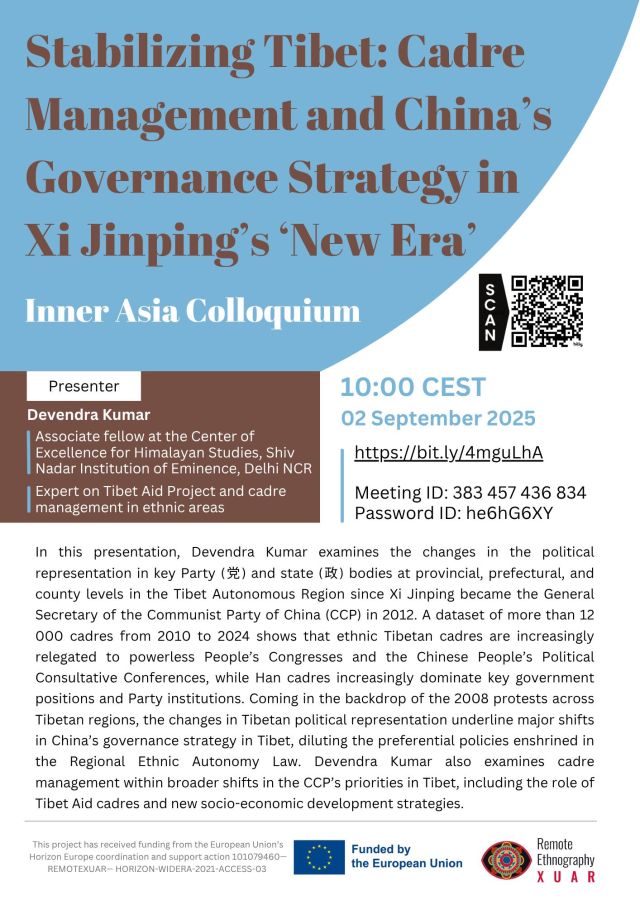Inner Asia Colloquium "Stabilizing Tibet. Cadre Management and China's Governance Strategy in Xi Jinping's 'New Era'."
Le 02/09/2025
by Devendra Kumar, Centre of Excellence for Himalayan Studies, School of Humanities and Social Sciences & Shiv Nadar Institution of Eminence
In partnership with Remote Xuar
In this presentation, Devendra Kumar examines the changes in the political representation in key Party (5E) and state (IX) bodies at provincial, prefectural, and county levels in the Tibet Autonomous Region since Xi Jinping became the General Secretary of the Communist Party of China (CCP) in 2012.
A dataset of more than 12 000 cadres from 2010 to 2024 shows that ethnic Tibetan cadres are increasingly relegated to powerless People's Congresses and the Chinese People's Political Consultative Conferences, while Han cadres increasingly dominate key government positions and Party institutions. Coming in the backdrop of the 2008 protests across Tibetan regions, the changes in Tibetan political representation underline major shifts in China's governance strategy in Tibet, diluting the preferential policies enshrined in the Regional Ethnic Autonomy Law. Devendra Kumar also examines cadre management within broader shifts in the CCP's priorities in Tibet, including the role of Tibet Aid cadres and new socio-economic development strategies.
Devendra Kumar is an Associate fellow at the Center of Excellence for Himalayan Studies, Shiv Nadar Institution of Eminence, Delhi NCR; and an expert on Tibet Aid Project and cadre management in ethnic areas.
Tuesday 2nd October 2025, from 10am - 12pm
Online here
Meeting ID: 383 457 436 834
Password ID: he6hG6XY
No registration required
Contact : east@ulb.be

